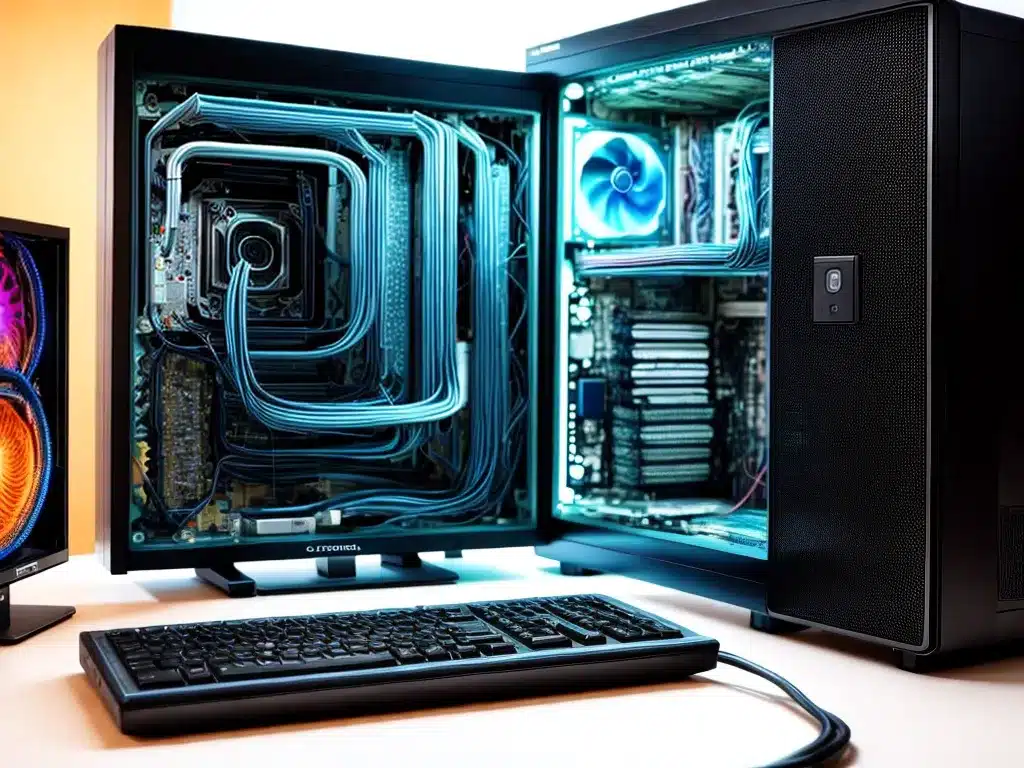
Upgrading or replacing an old computer is a common dilemma many face. With technology rapidly advancing, it can be tempting to simply buy a new device. However, upgrading your current machine can extend its lifespan and save money. Here are some key factors to consider when deciding between upgrading or replacing an aging computer:
Assess Your Current Computer’s Capabilities
Before deciding on an upgrade or replacement, take stock of your computer’s current condition. Consider the following:
-
Age – How old is your computer? Older machines generally have slower/outdated components.
-
Processing power – Is the CPU still fast enough for your needs? Slow processing can frustrate.
-
RAM – Upgrading RAM can give an old machine a boost. But there are limits to how much RAM an old motherboard supports.
-
Storage – Do you need more storage space? Adding a new hard drive or SSD can help.
-
Graphics – Is your graphics card still sufficient for things like gaming? A new GPU can sometimes help an old PC.
-
Ports – Do you need additional/updated ports (e.g. USB 3.0, Thunderbolt)? Newer interfaces may require upgraded motherboard.
-
Operating System – Can your computer still run the latest OS and software? Old OSes have security risks and limited software compatibility.
Carefully evaluating these factors will determine if your computer can be salvaged with upgrades or needs replacement.
Consider How You Use Your Computer
Your computer usage patterns should dictate whether upgrading or replacing is best:
-
Everyday tasks – For web browsing, office work, streaming, etc, upgrading selected components can extend a PC’s usefulness several years.
-
Gaming/graphics work – If your computer is for high-demand graphics/video applications, a new machine may be better than piecemeal upgrades.
-
Portability – Upgrading a laptop is difficult. For portability, a new laptop may make more sense than upgrading a heavy/low-battery-life older laptop.
-
Future-proofing – Upgrading extends usefulness short-term. For longevity, a new computer with the latest components is a better long-term investment.
Think about whether you need your computer to handle demanding tasks now and many years into the future. This can steer you towards the best value.
Consider Costs of Upgrading vs Replacing
The costs of upgrading or replacing can vary significantly:
-
Upgrading – Upgrading a component like RAM or storage is relatively inexpensive (usually $100-$300). But upgrading processors/motherboards can get pricey.
-
Replacing – While a brand new computer has a higher upfront cost, it should last many years. Shop sales and buy the essential components only.
-
Data backup/transfer – When replacing a computer, you’ll need to backup and transfer data to the new device. External drives help make this process easier.
-
Software – Will your current software licenses transfer to a new device? You may need to repurchase certain programs.
Factor in the total costs, both immediate and long term. Upgrading selected components can be an affordable way to extend usability. But there comes a point where replacement is the wiser investment.
Seek Advice From computer Experts
With so many factors to weigh, getting advice can help:
-
Consult with IT professionals to diagnose your computer’s upgradability. They can advise on feasible upgrades versus when replacement is better.
-
Talk to store sales staff about your needs. They can clarify the costs/benefits of upgrading vs replacement.
-
Ask savvy computer user friends for product recommendations and upgrade tips.
-
Search enthusiast forums for feedback on upgrading specific computer models. Other users share their experiences.
Experienced voices can provide perspective to make the best choice. Their insights may reveal upgrade options you hadn’t considered.
The choice between upgrading or replacing an aging computer involves weighing many variables. Think about your computer’s capabilities, how you use it, costs, and advice from experts. Optimizing these factors will lead you to the best decision – more life from upgrades or long-term value from replacement. Careful analysis of your needs will determine the ideal solution.












